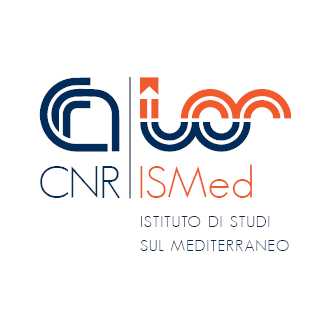Tourism economics and management
Coordinators: Piera Buonincontri and Roberto Micera
Abstract
The research line intends to promote the advancement of knowledge on the theme of tourism as a key sector of the Mediterranean economy, which is particularly interesting due to the intrinsic systemic nature of this sector, its organisational complexity and its interdependencies with the entire economic system.
The numerous countries bordering the Mediterranean have very different economic, social, cultural and political characteristics. These countries are at different stages of economic development and are facing the main challenges of the current era in different ways, first and foremost those concerning technological progress and sustainable development. In such a context, studying the phenomenon of tourism by considering the Mediterranean region as an integrated destination makes it possible to develop effective strategies aimed at linking even very different areas so that they can mutually reinforce each other and promote a more balanced growth of the entire basin.
The tourism sector, if properly structured and managed, can play a fundamental role in launching development strategies that are consistent with the identities of the territories and have a positive impact on the economy, culture and society of all the Mediterranean countries and islands.
Objectives
The research line focuses on the study of new trends related to tourism economics and management in order to develop a knowledge base useful both for individual organisations operating in tourism and for policy makers, who are called to face the numerous challenges of the competitive environment. Through its studies on the sector, ISMed intends to become a point of reference for the scientific community interested in tourism research in the Mediterranean.
The research line aims at investigating innovative management models of tourism enterprises, networks and destinations.
In addition, particular attention is devoted to the study of experiential marketing in tourism, with the aim of understanding the active role of consumers in the decision-making and development processes of organisations and to examine how new technologies can foster the use and enhancement of tourist attractions and cultural resources.
Activities
From a methodological point of view, a multidisciplinary approach implicit in the nature of tourism studies is favoured. The objectives of the research line are pursued through theoretical studies and empirical analyses that integrate the demand and supply side perspectives.
Specifically, the research activities foreseen are: study of the literature on specific topics concerning the tourism and cultural heritage sector; realisation of literature reviews, in order to identify the main strands, trends and emerging topics; collection, processing and analysis of empirical data, both through desk and field surveys; interpretation and study of the empirical analyses; reading of the empirical analyses through conceptual models and theories present in the literature, in order to identify the most innovative aspects emerging from the study of reality and the main characteristics of the object of study.
Themes
The themes currently addressed by the line of research are multiple, as there are many aspects connected to the economics and management of tourism: the role of new technologies in favouring the use, promotion and management of tourism and cultural products/services; the tourism experience and the processes of value co-creation generated by the interaction between tourists and the tourism and cultural offer system; the dynamics characterising destination management through the adoption of an inclusive and participatory approach able to guarantee “smart and sustainable” development (smart tourism destination and destination sustanability); innovative aspects for the sustainable development of a destination (the role of tourists, the local community and operators); the sharing economy as an opportunity for the growth of tourism organisations through the collaborative economy and the use of new technologies; crisis and disaster management strategies for the relaunch of destinations affected by the COVID-19 pandemic; the impacts of tourism on local economies; the role of cultural tourism on local development; events as marketing tools for the enhancement of tourism destinations.
Main collaborations
The research group collaborates on an ongoing basis with research groups of academic experts in tourism and destination management and with supranational, national and local trade associations and public bodies in the tourism sector. Formalised collaboration agreements for research and third mission activities include those with the Società Italiana Scienze del Turismo (Sistur), the Fondazione ITS BACT – ITS del turismo e dei beni culturali della Campania, the Centro Interdipartimentale di Ricerca Laboratorio di Urbanistica e Pianificazione territoriale “Raffaele d’Ambrosio” and the DMO Mediterranean Pearls.
Main collective research products
The annual report “Tourism Studies on the Mediterranean Region” published by McGraw Hill aims to outline an updated picture of the state of the art of tourism studies in the Mediterranean basin. The volumes in the series propose new models, methodologies and analysis tools, providing innovative guidelines that are useful for tackling the challenges faced by Mediterranean countries and rebalancing the economic, social and cultural gaps that persist between the countries on the north and south sides of the area. This represents the “first step” towards the realisation of a real Observatory on tourism in the Mediterranean countries.
Last update
20 November 2023, 12:06

 CNR – ISMed
CNR – ISMed